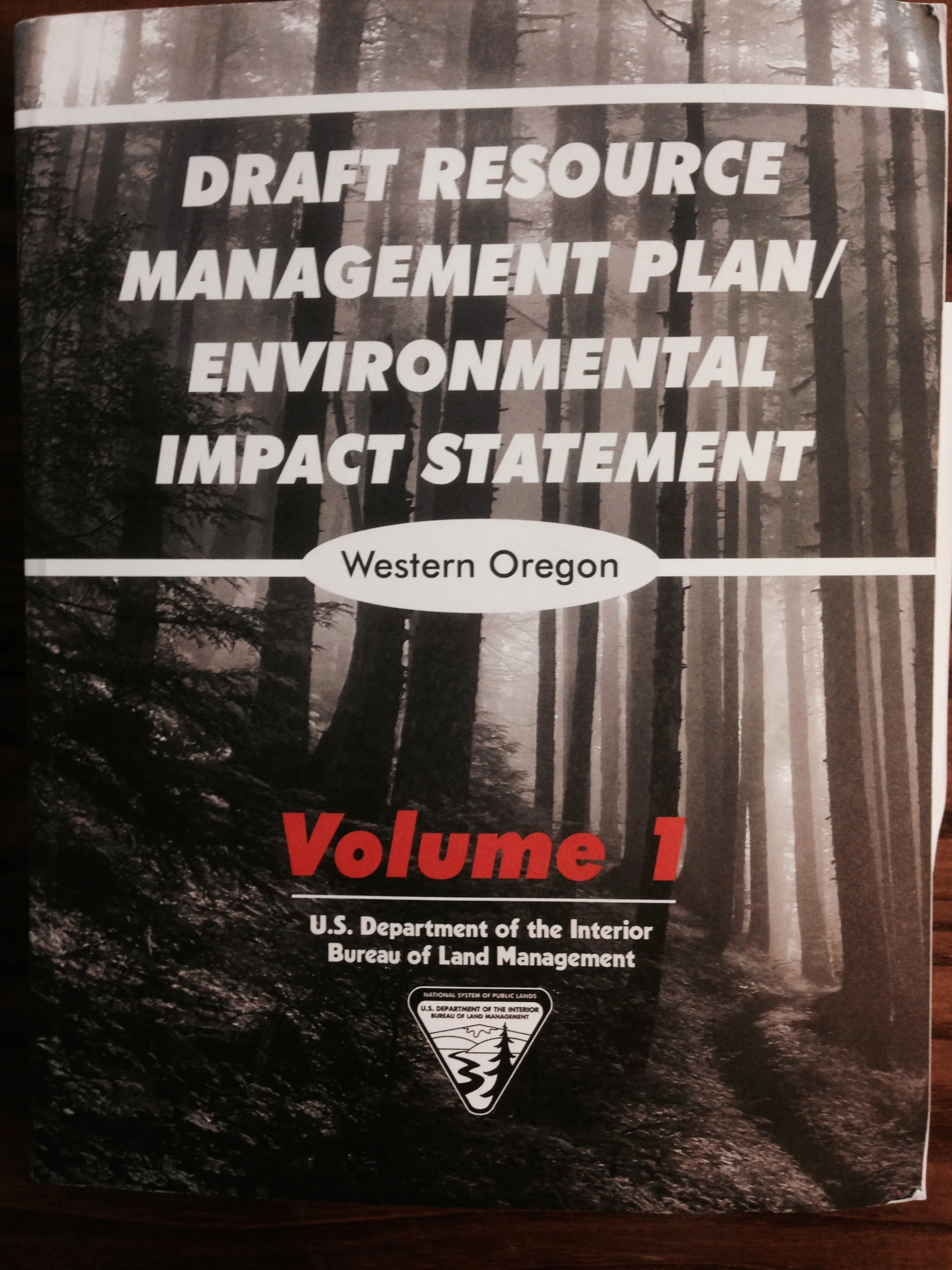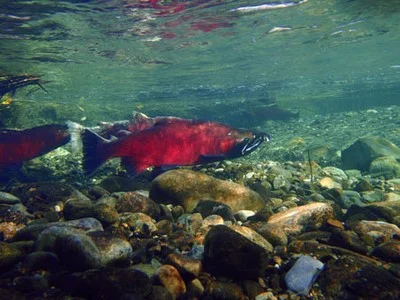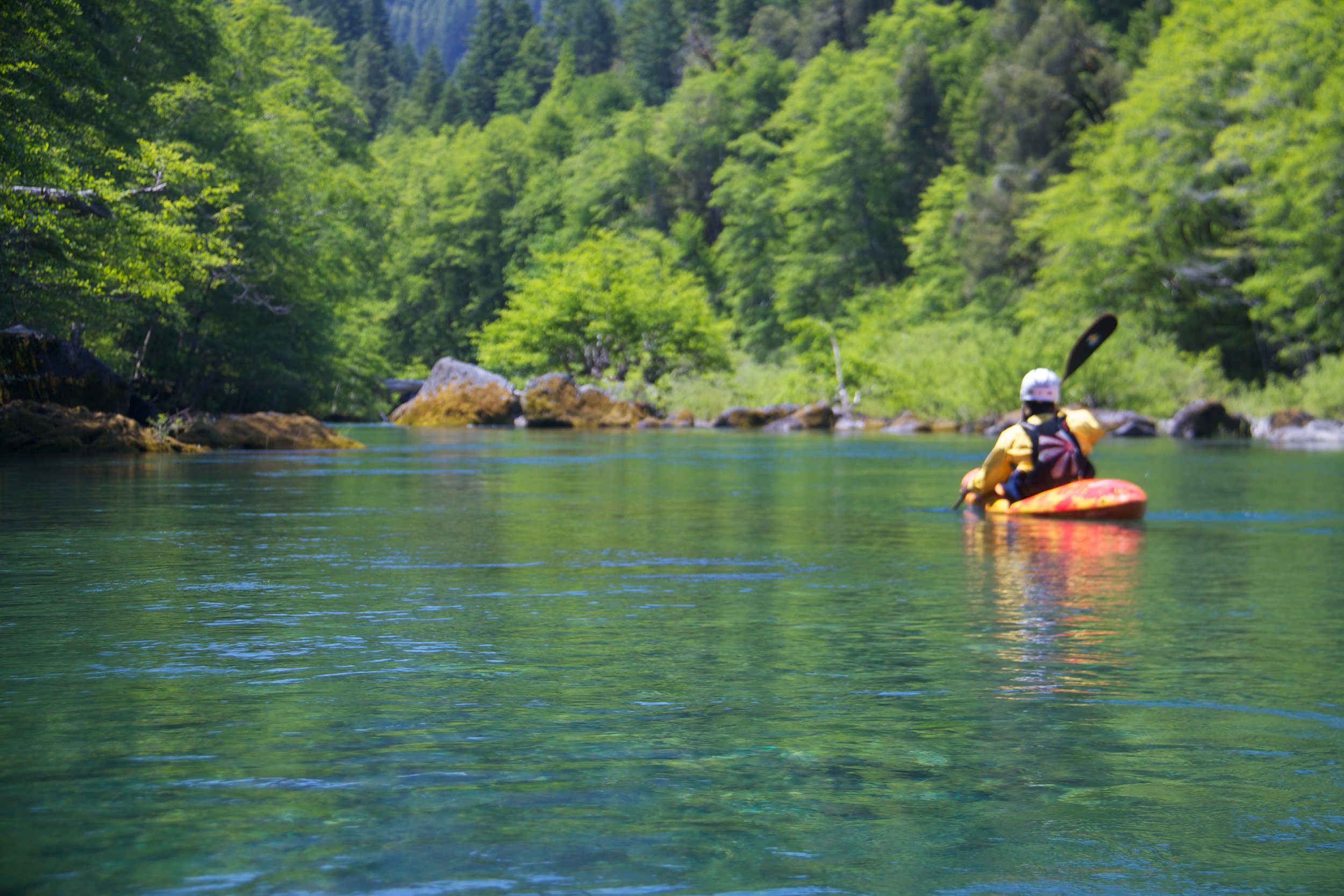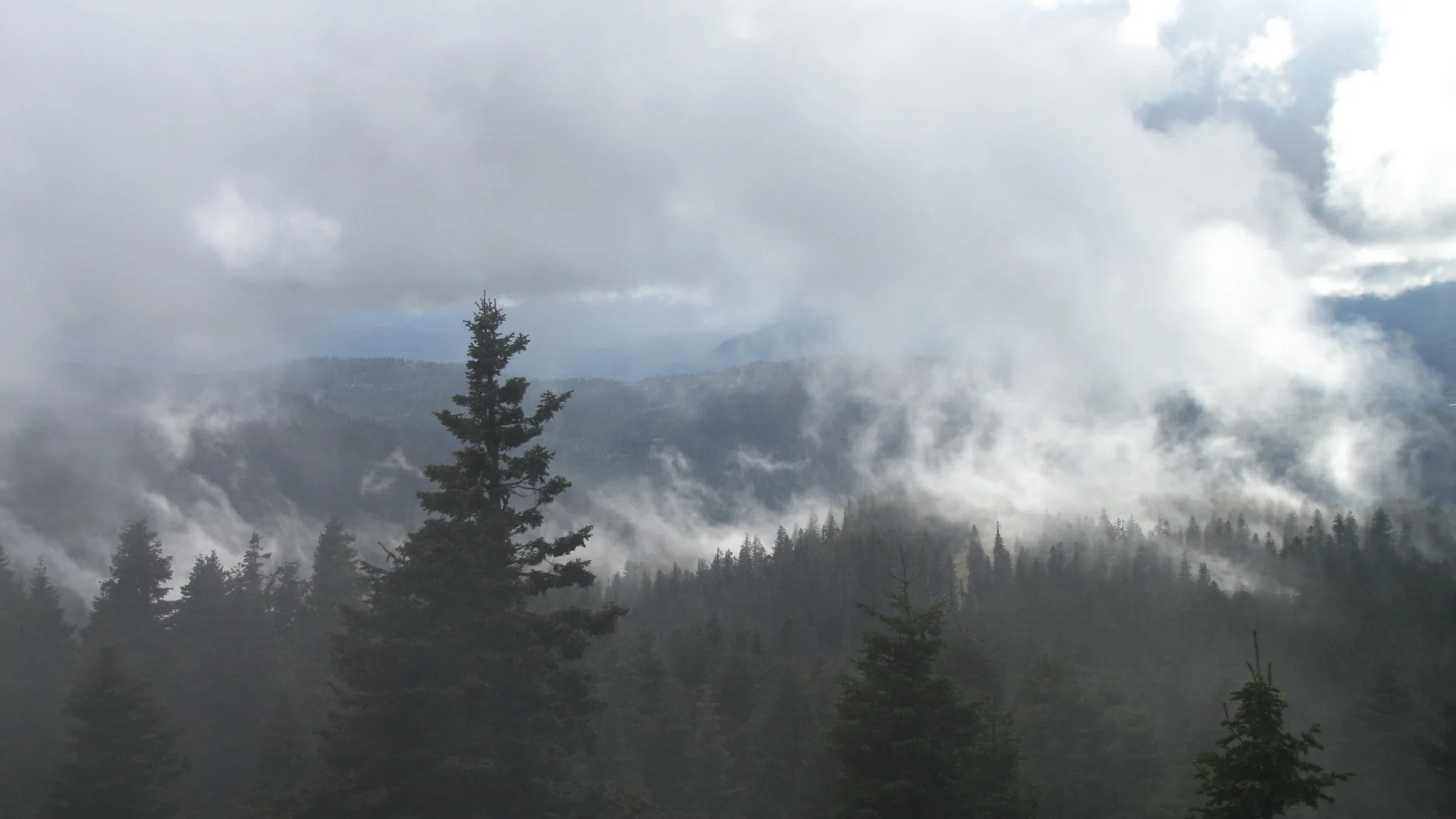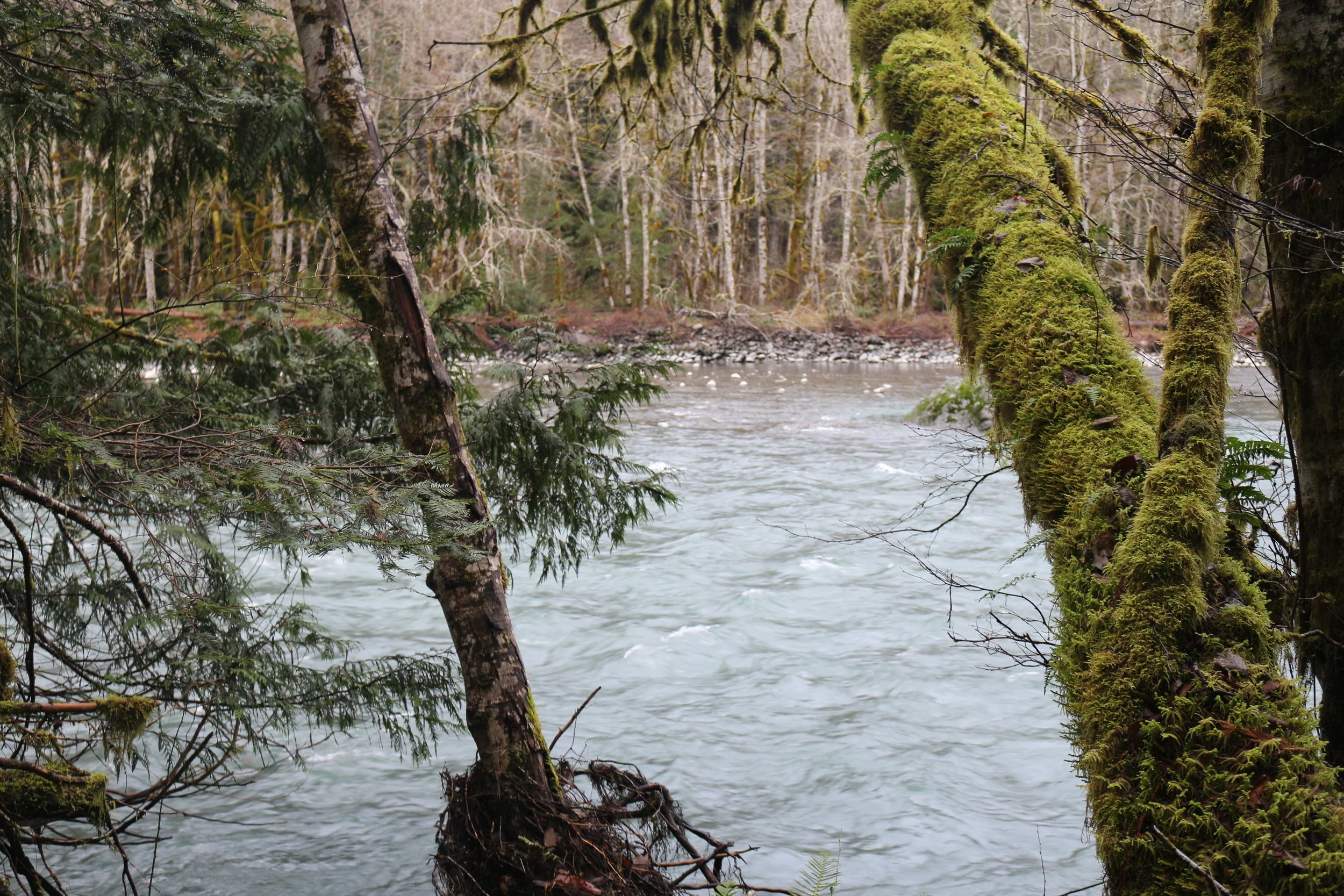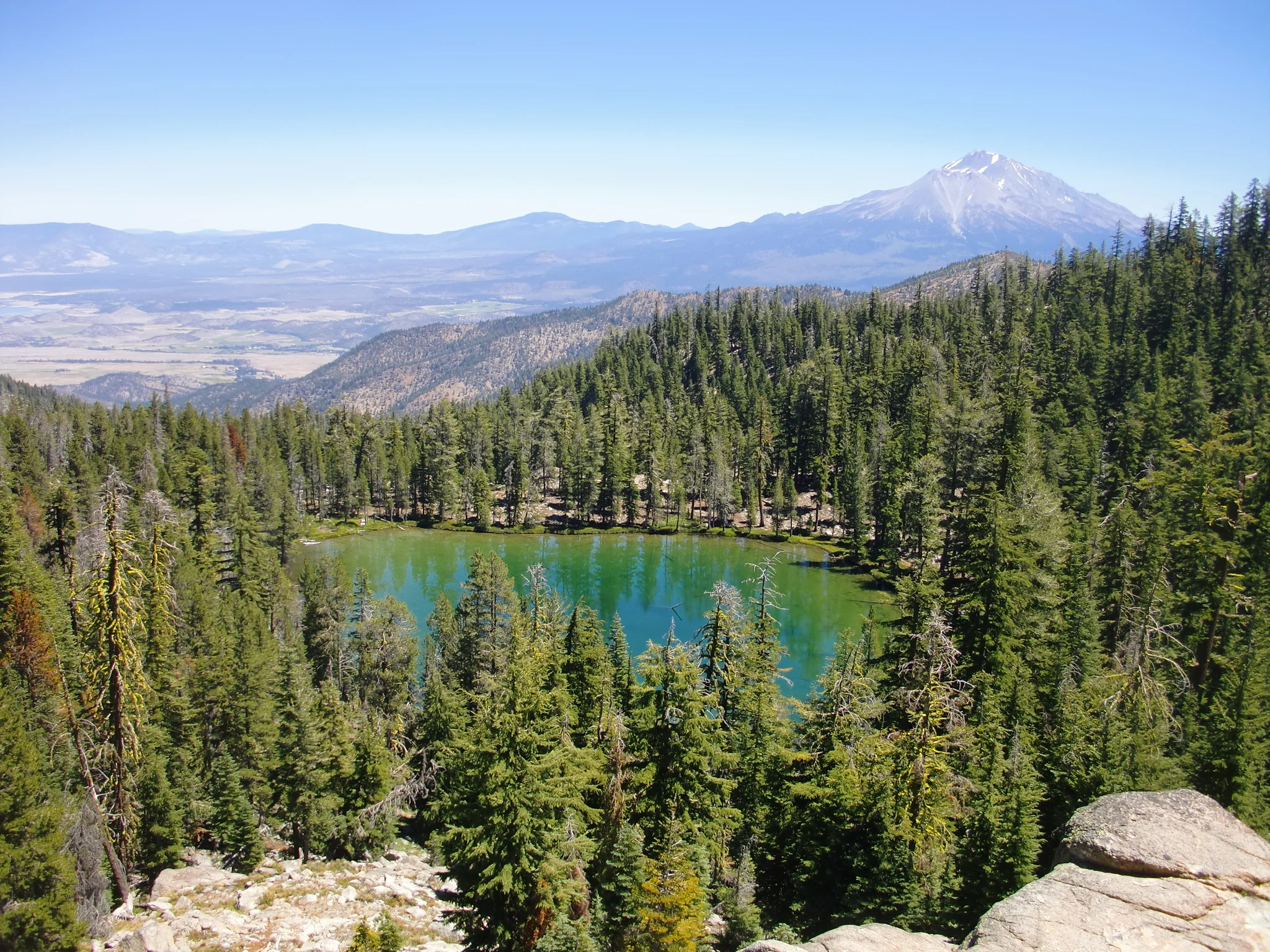Despite a 2017 ruling by the Obama Administration to put a 20-year moratorium on mining in the headwaters of the North Fork Smith River and Illinois River, a new mining company has emerged with plans to mine for nickel in the Baldface Creek watershed. Read more about KS Wild’s work protecting this region from mining here.
Read MoreFew experiences are more evocative of the Pacific Northwest than the sight of a salmon leaping a waterfall. People gather to watch as they make their way to ancestral spawning grounds each year at Rainie Falls on the Rogue River or the mouth of Wooley Creek on the Salmon River. Some rivers of the Klamath-Siskiyou are strongholds for wild salmon, including the federally listed Northern California/Southern Oregon Coho Salmon
Read MoreUnlike most of North America, we are extremely fortunate to live in a region in which five major wildland complexes have thusfar survived the pressures from logging, mining and road construction. It is our job and responsibility to protect these special places for the those who come after us and for their intrinsic value.
Read MoreOn August 5, the Bureau of Land Management (BLM) signed a management plan for western Oregon, largely ignoring a formal protest from 22 conservation and fishing groups. The BLM plan eliminates protections for streamside forests, increases clearcutting in wet forests, and removes 2.6 million acres of federally managed public forests from the 1994 Northwest Forest Plan
Read MoreWe are celebrating the recent victory to protect some of our most prized rivers from proposed industrial strip mining for a period of 20 years. We are hopeful that this victory will stand, even in the Trump administration.
Read MoreAfter four local public hearings and thousands of letters to elected officials, support for the Cascade-Siskiyou National Monument has been heard! On Thursday, January 12, 2017, President Obama used his authority under the Antiquities Act to expand the Cascade-Siskiyou National Monument in southern Oregon.
Read MoreThe Bureau of Land Management administers the public forests that surround communities in Western Oregon. These are our backyard forests! Places like the Wild Rogue River, the Applegate Valley foothills and rare plant hotspots in the Illinois Valley deserve our best conservation efforts.
Read Morehe Oregon Department of Forestry (ODF) has failed to protect the clear, cold streams and fish in our region by excluding them in their decision to expand stream buffers for Western Oregon’s forests. ODF granted limited protections for streams to the north but left out almost the entirety of the Siskiyou region (essentially the Rogue Basin) in their policy decision.
Read MoreEnvironmental stewards can operate in a variety of ways: as practitioners, donors, and doers. Our staff works hard each day as practitioners, working directly with government agencies and stakeholders to promote best practices in the management of our public lands. Foundations and community members serve as vital donors, providing financial support for our work. The doers are all of you—KS Wild members, volunteers, interns, and partners—who take part in our work, voice your support for public lands, or even just get out on a hike.
Read MoreWhile most Americans cherish the idea that public lands belong to and benefit all of us, corporate timber, mining and grazing interests have long sought to privatize public lands in order to maximize profits to their respective industries. While subsidized logging, mining and grazing occur on the vast majority of public lands, these extremists bristle at the idea of there being any rules regarding their exploitation of our forests and rivers.
Read MoreRegularly visited by botanists, it boasts the highest wildflower diversity in Oregon. Fisher folk appreciate the habitat it provides for steelhead and cutthroat trout, and it is well known by locals for always running clear. Before entering the Wild and Scenic Illinois River, it flows through a rugged, beautiful wilderness landscape. Part of this area, the South Kalmiopsis Roadless area was recommended as an addition to the Kalmiopsis Wilderness in 2004.
Read MoreWestern Oregon’s BLM lands support salmon, steelhead, and wildlife while delivering clean water and recreational values to the public. These forests are source-drinking watersheds for hun-dreds of thousands of Oregonians, they sequester large amounts of carbon, and they provide crucial ecological functions. The natural amenities found on these public lands are highly valued and sought after, from local residents to tourists from around the world.
Read MoreRogue Riverkeeper has monitored local streams for fecal bacteria, turbidity, pH, temperature, and conductivity with a number of great partners throughout our region. Our past efforts have documented steadily declining water quality throughout the Little Butte Creek watershed, improving water quality on Evans Creek, and highlighted the source of pollution on Ashland Creek so that steps could be taken to improve the situation.
Read MoreBut what is more important is that wilderness offers something more than just its value to humanity. In wilderness is the essence of all life; it is where complex biological systems continue to function in ways that humans are only beginning to understand. Saving the remaining pieces of wild nature is part of our duty to ourselves, our children, and for all life on the planet.
Read MoreThe public lands in the Smith River Watershed are legendary for their unique botanical diver- sity and for providing clear, cold water to the largest un-damned river system on the West Coast. It is a stunning and spectacular part of America’s natural heritage that is literally like nowhere else on Earth.
Read More



